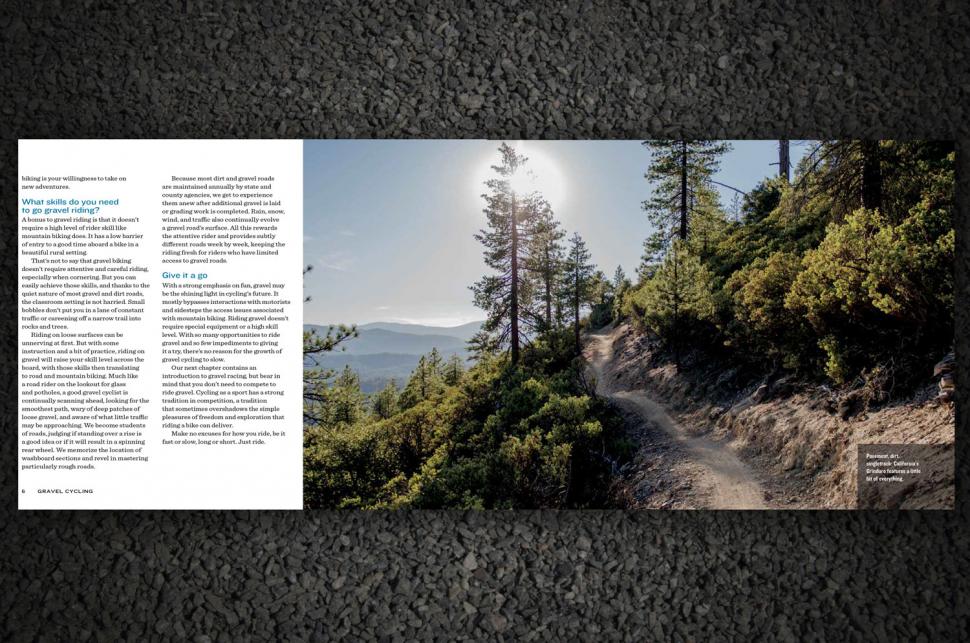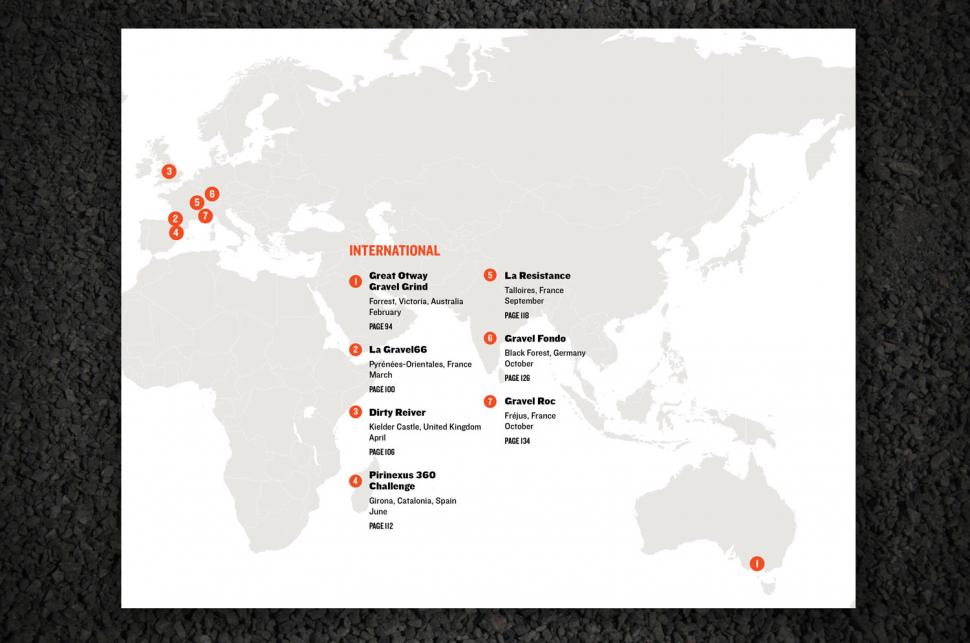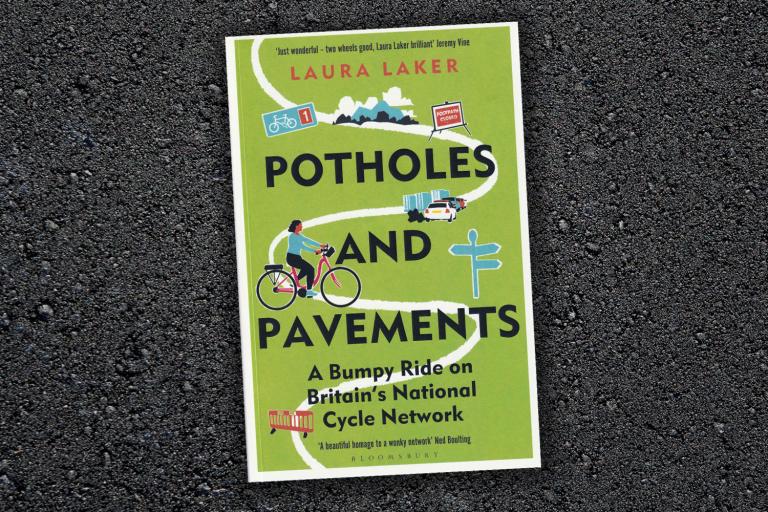- News
- Reviews
- Bikes
- Accessories
- Accessories - misc
- Computer mounts
- Bags
- Bar ends
- Bike bags & cases
- Bottle cages
- Bottles
- Cameras
- Car racks
- Child seats
- Computers
- Glasses
- GPS units
- Helmets
- Lights - front
- Lights - rear
- Lights - sets
- Locks
- Mirrors
- Mudguards
- Racks
- Pumps & CO2 inflators
- Puncture kits
- Reflectives
- Smart watches
- Stands and racks
- Trailers
- Clothing
- Components
- Bar tape & grips
- Bottom brackets
- Brake & gear cables
- Brake & STI levers
- Brake pads & spares
- Brakes
- Cassettes & freewheels
- Chains
- Chainsets & chainrings
- Derailleurs - front
- Derailleurs - rear
- Forks
- Gear levers & shifters
- Groupsets
- Handlebars & extensions
- Headsets
- Hubs
- Inner tubes
- Pedals
- Quick releases & skewers
- Saddles
- Seatposts
- Stems
- Wheels
- Tyres
- Health, fitness and nutrition
- Tools and workshop
- Miscellaneous
- Tubeless valves
- Buyers Guides
- Features
- Forum
- Recommends
- Podcast
review
£21.95
VERDICT:
A good insight into the gravel riding phenomenon – but mainly for an American audience
Weight:
900g
Contact:
At road.cc every product is thoroughly tested for as long as it takes to get a proper insight into how well it works. Our reviewers are experienced cyclists that we trust to be objective. While we strive to ensure that opinions expressed are backed up by facts, reviews are by their nature an informed opinion, not a definitive verdict. We don't intentionally try to break anything (except locks) but we do try to look for weak points in any design. The overall score is not just an average of the other scores: it reflects both a product's function and value – with value determined by how a product compares with items of similar spec, quality, and price.
What the road.cc scores meanGood scores are more common than bad, because fortunately good products are more common than bad.
- Exceptional
- Excellent
- Very Good
- Good
- Quite good
- Average
- Not so good
- Poor
- Bad
- Appalling
Gravel Cycling may be the first book of that name, but it certainly won't be the last on the subject. In it, 'accomplished gravel cyclist' Nick Legan's mission is to show the 'gravel-virgins' among us what we are missing and inspire us to 'get into gravel and discover a whole new way to enjoy the great outdoors'. The photographs alone do that, accompanied by a beginner's guide to the activity.
Gravel cycling: think of it what you will (and call it what you will), it is receiving a lot of attention. Some claim it to be the fastest growing category of cycling – although I suspect that is only true in certain places.
What is the appeal of gravel riding? Legan sees it as 'a natural solution to the problems of road riding or mountain biking', avoiding the danger of the former, and the skill requirements of the latter.
What is a gravel bike? Legan keeps his definition 'intentionally vague because riders all over the world enjoy riding dirt and gravel on bicycles as different as lightweight carbon-fiber and road race bikes and heavy-duty dual-suspension mountain bikes'. Basically, anything goes.
> Cyclocross bikes vs gravel/adventure bikes: what's the difference?
Legan also encourages you to look at using bikes with older (possibly more reliable) technology, and to make bikes multi-purpose do-it-all machines, after all, 'gravel riding isn't the Tour de France, where small differences have large consequences'. In other words, don't let equipment considerations put you off just getting out there and doing it – which is a refreshing attitude.
In a separate chapter about bikepacking, Legan again suggests that while specific machines exist, whatever you are using as a gravel bike can do the job perfectly well. Again, not really what the bike trade wants to hear, but a sensible approach.
> Beginner's guide to backpacking
Once the 'gravel' bandwagon got underway, more and more brands started producing gravel-specific bikes, followed inevitably by 'gravel' socks, tyre levers, and of course books. Okay, I might have made some of those up, but the gravel trend shows no sign of abating: what better time to review a book about it?
It won't have escaped your attention that most of the gravel action is coming from the USA. With so many of our biggest brands in cycling being American, it is no surprise that we are hearing so much about it, but how can it be so popular over there? A major factor is that they have the opportunity: apparently 'over one-third of the roads in the US are unpaved', so that is a lot of tracks to explore.
Over half of the book is about various gravel events and routes; however, don't expect this book to help you plan a UK trip. The book covers 11 events in the US, seven in Europe, and one in Australia. Only one of the European events is in the UK, the Dirty Reiver.
Things are even more US-centric with the suggested routes, as all eight are in America.
While that might reduce the book's relevance and appeal to a British audience, it can still serve a purpose, moving from a planning aid to a motivation aid: it is worth looking at for the inspirational images alone. True coffee-table book quality pictures, just not in a conventional coffee-table book – more of a lavish paperback.
The book attempts to cover virtually every other topic that might be relevant to a gravel rider, to live up to the claim of being 'the complete guide'. Just be aware that in many cases some of the information is not really gravel-specific – such as bike maintenance, training plans, and nutrition, for example.
> Buyer's Guide: 18 of the best adventure & gravel bikes
In a book of this size none of the general cycling information is covered in much detail. This means that it is unlikely to reveal much about cycling that an experienced rider won't know already, but will still be useful for anyone new to the sport. It may offer wide-ranging coverage, but certainly not in-depth coverage.
Legan's experience is more relevant when it gets to gravel-specific information, such as the discussion about the role of electronics: when you realise that even the simple act of charging GPS units, lights, and electronic shifters can present challenges in the middle of nowhere, you can be sure that he won't be recommending e-bikes anytime soon.
Throughout the book there are interviews with (and tips from) key gravel riders and event organisers. For me, one of the highlights was the lengthy interview with ultra-distance legend John Stamstad, who has been doing this sort of thing for over 25 years and made his name at the decidedly non-gravel Iditarod event.
Gravel Cycling covers a lot of ground, but not in enough detail to be classed as the definitive guide to the sport. Its usefulness for a British audience is further reduced by the strong American focus, but despite that, it helps you to understand why the 'glorious return to the purest roots of two-wheeled adventure' is proving so popular. And the pictures do a great job of encouraging you to get out there and experience it for yourself.
Verdict
A good insight into the gravel riding phenomenon – but mainly for an American audience
road.cc test report
Make and model: Gravel Cycling - The Complete Guide to Gravel Racing & Adventure Bikepacking
Size tested: n/a
Tell us what the product is for
From VeloPress:
The Complete Guide to Gravel Racing and Adventure Bikepacking, accomplished gravel cyclist Nick Legan shares his love of this unique style of riding. Legan's comprehensive guide to gravel biking and adventure bikepacking covers all the gear, bike setup, riding tips, and outfitting strategies you need to launch your own adventure riding into the great outdoors. Legan shares colorful stories of the origins of gravel cycling in North America and its rapid spread to Europe, Asia, and South America. He speaks with founding members of the gravel racing scene and also looks at the cycling industry's adoption of the category. Most of all, the gorgeous photographs from beautiful rides will inspire you to seek out dirt and gravel roads near you.
Tell us some more about the technical aspects of the product?
Title: Gravel Cycling
Author: Nick Legan
Publisher: VeloPress
Date: 9/10/17
Format: Paperback
Pages: 290
ISBN: 9781937715700
Price: £21.95
Rate the product for value:
5/10
Lots of colour pictures for the money, on good quality paper – but only a paperback cover.
Tell us what you particularly liked about the product
The pictures.
Tell us what you particularly disliked about the product
Designed for an American audience.
Did you enjoy using the product? Yes
Would you consider buying the product? Yes
Would you recommend the product to a friend? Yes, in specific circumstances.
Use this box to explain your overall score
A worthwhile book, but it is not going to be the definitive guide for a British audience.
About the tester
Age: 55
I usually ride: My best bike is:
I've been riding for: Over 20 years I ride: Every day I would class myself as: Expert
I regularly do the following types of riding: commuting, touring, club rides, sportives, general fitness riding















Here is a formula working out the cost of cycling on an individual level....
That is nowhere near 90 degrees.
No idea if Cancellara was using a motor or not, I hope not as I greatly enjoyed him as a rider, but the tech was certainly available, I can...
Fair enough:...
Centaur groupset. WDIW?
Usual ugly Pinarello, bumps and curves where they aren't needed. And, according to Mapdec, not well built.
That's not strictly true - Reform will legalise immigrant baiting, trans bashing and tar and feathering of anyone woke. Loads of fun for all the...
What's a "legitimate cyclist" please? Someone who doesn't conform to your arbitrary norms? At the age of 56 I admit that you have 13 years more...
This risks turning me into a hanger and flogger....
I had the pleasure of owning two of the featured builders here, in my history. When I joined the Army in 1971, I took with me my curly Hetchins:...